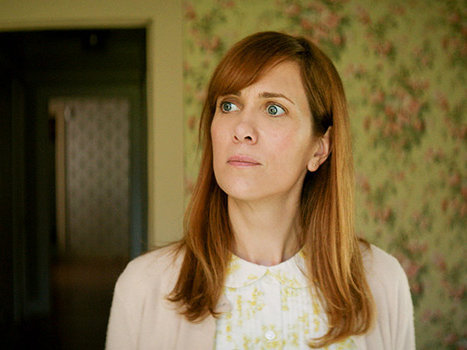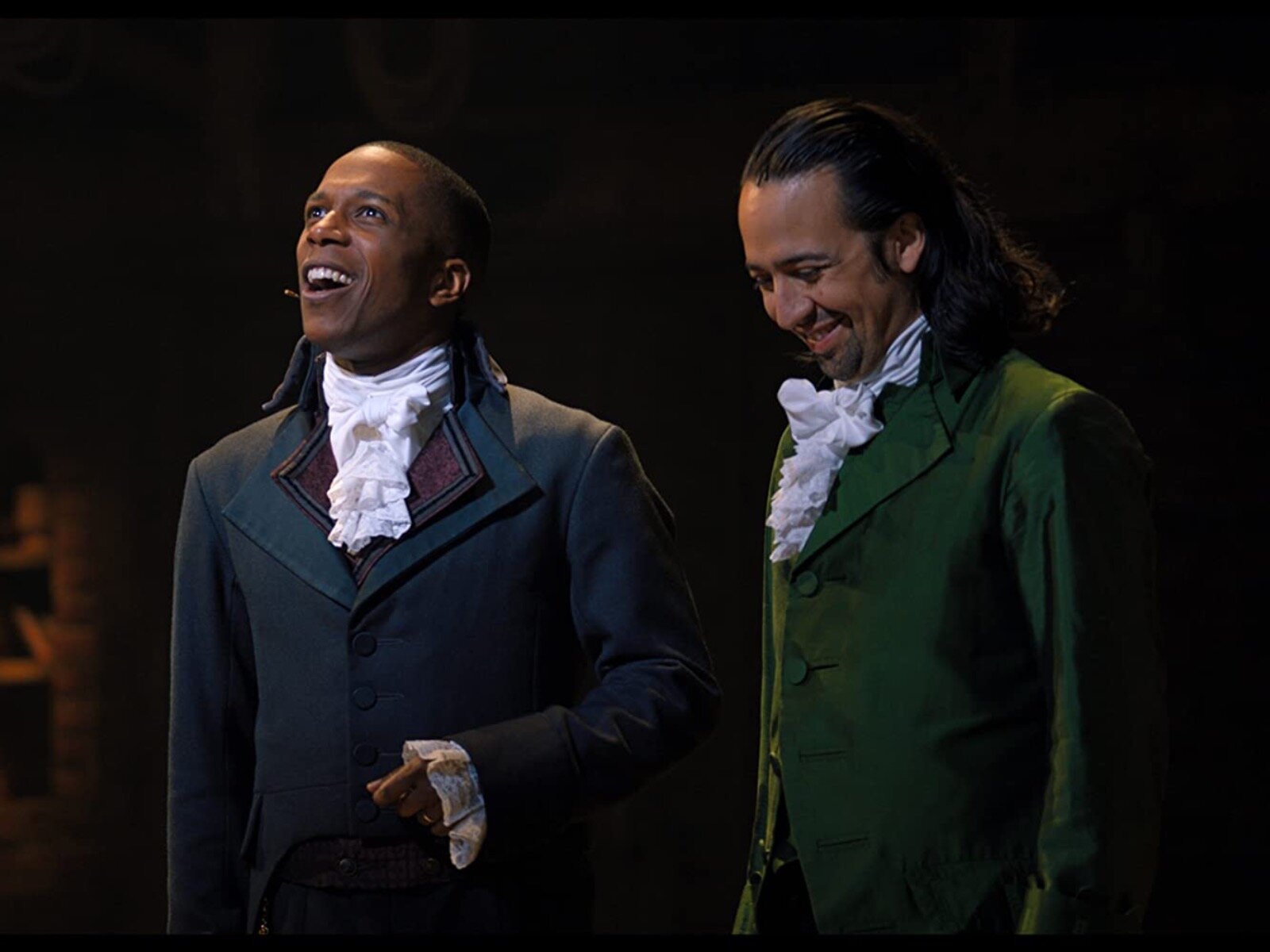There’s a scene in the first act of Liza Johnson’s "Hateship Loveship" that’s particularly odd, amusing and a wee-bit tragic. Sheltered caretaker Johanna (Kristen Wiig, "Bridesmaids") stands inside of a bathroom, facing directly into the mirror that she just polished. She takes a moment to take a good look at herself in the mirror before inching her face closer and closer to the mirror until she gives her reflection a peck on the lips, which then turns into a devastatingly awkward, messy and quite passionate, tongue-on-mirror make out session.
It’s one of only two scenes in the film that consciously elicits a laugh, and it’s all due to Wiig’s impeccable comic tendencies – even when the scene is supposed to be more tragically humorous than just, well, humorous.
The rest of "Hateship Loveship" is a dose of seriousness that we haven’t seen from Wiig before, and it’s very welcoming to accept as a success. Even when her performance is more quiet than exuberant, however, this doesn’t shrug off the fact that Johanna may be one of the most awkward characters she has portrayed yet – and this is the same comedienne who once donned extremely small, infant-sized hands and an oversized forehead.
The film, based on Alice Munro’s short story "Hateship, Friendship, Loveship, Marriage," opens with Johanna caring for an elderly woman who’s on her deathbed. From her drab appearance to her quietness, it’s not difficult to guess that she’s one that chooses work over anything else or at least hasn’t made an effort otherwise.
Upon discovering that the woman has passed away in her sleep, Johanna refrains from becoming emotional and instead struggles to dress the deceased woman in a blue dress as if she’s a doll. It’s a darker moment that was a little bit more humorous than expected. Who knows if she was shaken up by the death, but nonetheless, she moves onto her next employer, Mr. McCauley (a grizzled Nick Nolte).
She’s hired to help keep up the house and watch over his headstrong teenage granddaughter Sabitha (Hailee Steinfeld). The day that Johanna arrives at the house, Ken (Guy Pearce), Sabitha’s addict father, has made what it seems like an unexpected and unwelcomed visit. She’s only in the house for a couple hours before she initially becomes curious about Ken. He calls her gorgeous, a compliment that she hasn’t received in a long, long time, if ever before, judging from her satisfied reaction.
Ken takes out Johanna, Sabitha, and Sabitha’s friend Edith (Sami Gayle from the underrated film "Detachment") out for a burger before heading back home to Chicago where he resides in a broken down motel that he hopes to maybe fix up one day.
Johanna goes through day by day, becoming more observational of Sabitha’s behavior as well as learning that Mr. McCauley stores antique furniture that belonged to Sabitha’s mother who tragically died in an accident. Ken detaches himself since heading back to Chicago, not being heard from again for weeks besides a rather polite letter he writes to Johanna, thanking her for watching his daughter. The letter itself is a kind gesture, but she becomes infatuated with this thin layer of kindness.
At this point, the audience is already aware that Ken’s bad news. This isn’t quite apparent to Johanna, however, who acts as if her whole world is shining brighter after receiving the unexpected attention, giving her so much hope for a wedded future of bliss – which exposes her to heartbreak further down the line when Sabitha and Edith forge love letters and emails in Ken’s name to Johanna, who to Sabitha is just the weirdo who has just moved into her house.
"Hateship Loveship" is a film that I really wanted to like, but it quickly fell apart after the first act, soon becoming as bland as a bowl of Fiber One cereal. You start to wonder what Johnson – who previously directed the impressive drama "Return" – wanted to accomplish with the characters and the story itself.
Sabitha's prank is cruel, that much we know, and it’s the catalyst that drives the film forward as Johanna hops onto a bus and heads to Chicago to be with Ken, a man who probably hasn’t thought about her since he sent the polite letter. It’s painful to watch because we know what’s coming: disappointment.
Johnson has this character in her control, but she doesn’t give us much hope for her, even when the attention shifts to Johanna’s failed attempt to woo Ken, who is found looking haggard, coughing up a lung inside of his broken home. Of course, she’s unhappy when she hears Ken say that he doesn’t have an email account and has no recollection of being romantic towards her.
At this moment, she knows she’s the victim of a prank, but she still rolls up her sleeves and does what she feels is best: cleaning Ken’s entire place, scrubbing and picking away its dirt, both in the literal and figurative sense. Eventually, she takes over his life and where she sees hope, we see nothing but impending disappointment.
The film suggests that a person like Ken can be cleaned with a bit of empathy and patience, but his character is never developed enough to make us entirely trust him. The case is never made that he’s worth Johanna’s effort. Just because he takes a shower and his apartment is cleaned, we’re supposed to feel as if he’s a changed man, but the transformation comes across as implausible.We understand that he may want structure to his chaotic life after all, but it still feels forced.
Still, the usually impressive Guy Pearce gives an effortless performance here, managing to find a way to draw our attention whenever he’s on the screen.
Wiig portrays Johanna as she’s written. She turns up the awkward a couple notches and succeeds at encompassing the character and all of her quirks down to the way she dresses and when she half-smiles when showing a hint of happiness, which isn’t too often. Her mouth is often closed, choosing not to express herself in moments when we feel she has to.
Johanna is definitely an interesting character who isn’t given enough time to really develop and blossom. She moves along the film as if she’s unhappy about her very existence, because as we understand, she has been sheltered from life’s pleasures besides a random trip to Iowa City. We’re anxious to see her be more alive, but she’s always the victim, one who seems never quite satisfied about certain outcomes.
The main issue with "Hateship Loveship" is that it hinges away from exploring too much in depth with the central issues within the film. The screenplay, which is written by Mark Poirier ("Smart People," "Goats"), never quite reaches far enough to bring lingering drama to light. Instead, the script avoids those more dramatic issues with other filler that’s left without resolution, such as a senseless argument between Sabitha and Edith which ends up tearing their friendship apart.
There’s also the romantic, but entirely random, relationship between Mr. McCauley and his lonely bank teller (Christine Lahti). Oh, and the usually talented Jennifer Jason Leigh shows up in a couple scenes as Ken’s drug addicted friend who isn’t given much to do. There’s no reason for any of these small story arcs to exist in the film besides to give the actors, who are strong with what they’re given, more screen time.
The last few moments of the film quickly leap forward in time, giving us some sort of a happy ending for both Johanna and Ken. They're both deserving, and I’m all for a happy ending, but in "Hateship Loveship," such an ending feels false in its pursuit to be poignant.
"Hateship Loveship" can be found on iTunes, VOD (check your cable provider) and Amazon.
Colton Dunham's passion for movies began back as far as he can remember. Before he reached double digits in age, he stayed up on Saturday nights and watched numerous classic horror movies with his grandfather. Eventually, he branched out to other genres and the passion grew to what it is today.
Only this time, he's writing about his response to each movie he sees, whether it's a review for a website, or a short, 140-character review on Twitter. When he's not inside of a movie theater, at home binge watching a television show, or bragging that he's a published author, he's pursuing to keep movies a huge part of his life, whether it's as a journalist/critic or, ahem, a screenwriter.







